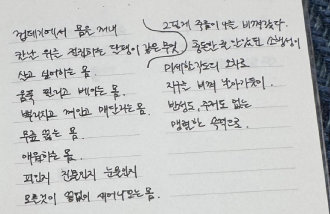U.S. proposes stronger bill than CHIPS Act and IRA
U.S. proposes stronger bill than CHIPS Act and IRA
Posted May. 06, 2023 07:54,
Updated May. 06, 2023 07:54
The U.S. Congress is moving forward with the China Competition Bill 2.0, as a follow-up to the CHIPS and Science Act. Though the proposal's details have not yet been revealed, it is expected to contain a wide range of measures to curb China, such as investment restrictions, economic sanctions, and limits on the export of advanced technologies, including semiconductors. Senate Democrats introduced this proposal on Wednesday, with the Senate Democratic Leader stating, "We must continue to strengthen national security with the CHIPS Act as a model and compete with China in the world."
While the CHIPS Act, which was passed by the U.S. Congress last year, aimed to discourage investment in semiconductor facilities in China through significant subsidies, the new bill goes beyond semiconductors and covers a wide range of high-tech industries, including bio, battery, and energy. Specifically, the proposal is expected to strengthen export controls on China and investment review not only for U.S. companies but also for those of its allies to prevent the transfer of high-tech technology or investment to China.
The current efforts are a cause for concern as they aim to further sophisticate U.S. strategies to exclude China from high-tech supply chains. Unfortunately, Korean companies are already being compelled to comply with the CHIPS Act and the Inflation Reduction Act (IRA), which the U.S. created to safeguard its industry and restrain China. However, many of these provisions are difficult to meet in the short term, placing a significant burden on Korean companies that want to gain access to the U.S. market. In this situation, the burden on Korean companies will only increase when the follow-up legislation becomes visible.
Furthermore, if China retaliates against the U.S. move, Korean companies could be caught in the crossfire. China has started restricting exports of essential materials for high-tech industries, such as rare earth minerals, and has initiated a security review of U.S. semiconductor company Micron. Additionally, it has requested that the World Trade Organization investigate the U.S., Japan, and the Netherlands for restricting exports of semiconductor equipment to China.
As Chuck Schumer pointed out, "We need to go beyond the CHIPS Act and the IRA," meaning that the pressure on Korea to join U.S. efforts to curb China and trade pressures will likely intensify. While expanding our alliance with the United States to include high-tech industries and technologies is necessary, Korean companies should not be harmed unilaterally in this process. The South Korean government and industries must communicate closely and find solutions to minimize adverse spillover effects. Additionally, politicians should use their diplomatic muscles to engage those in the U.S. who share similar views. We need to end situations where we were stabbed in the back and left playing catch-up, such as with the CHIPS Act and the IRA.







